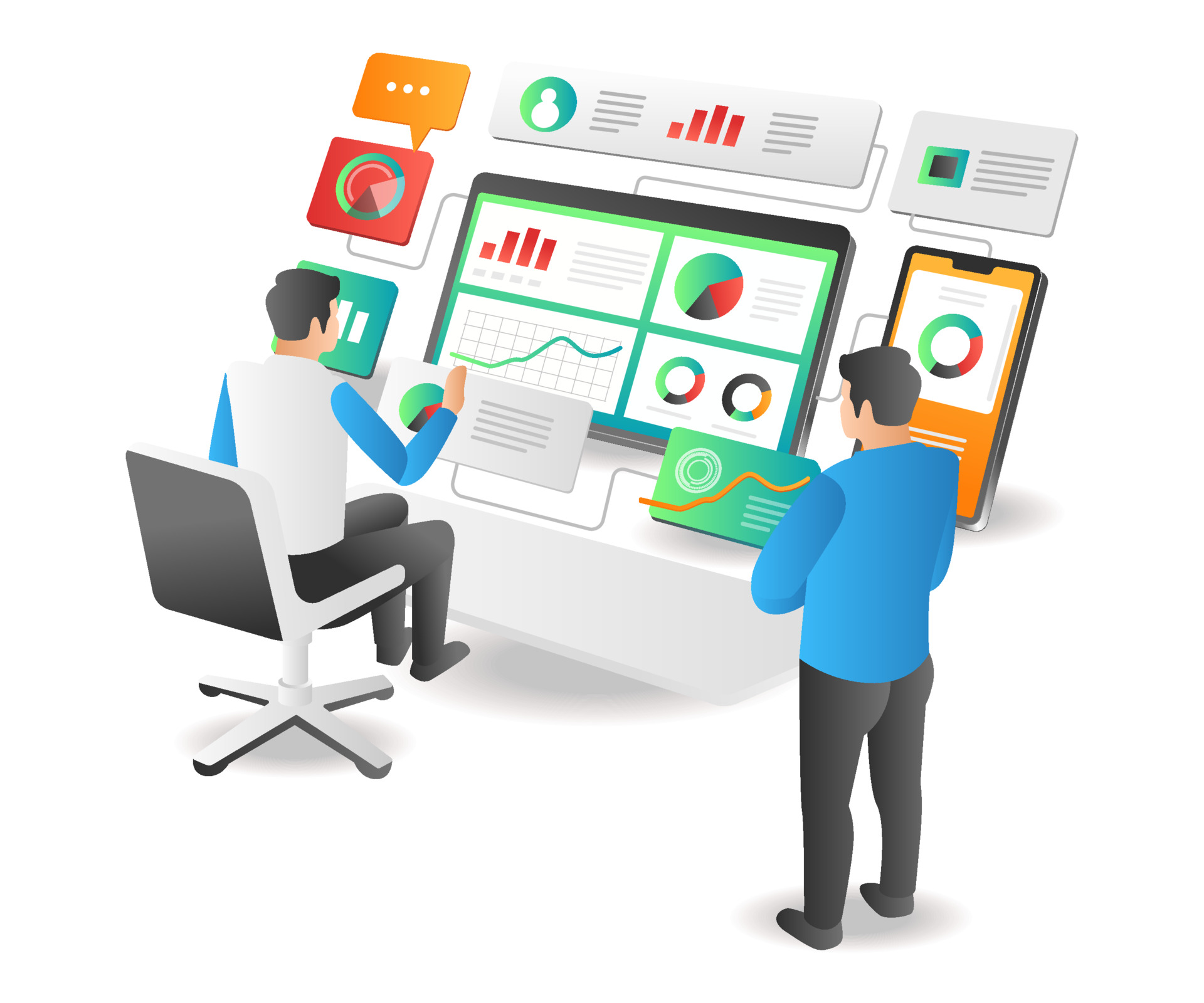Explore with Versa Cloud ERP the Strategic Benefits of an ERP.
Role of ERP
Enterprise resource planning (ERP) systems are centralized databases containing core business modules like inventory, purchasing, order management, finance, supply chain, manufacturing, and human resources. Integration connects these disparate yet interdependent functions for seamless data sharing. As modern businesses operate across multiple locations and departments, siloed systems hinder visibility and coordination. ERP integration breaks down these data barriers, providing a single source of truth.
True value from ERP integration is realized not just from the initial linkage of systems, but an ongoing process of optimization, customization, and expansion. Only by continually evolving integrated processes can a business stay ahead of the competition. This article will explore how maximizing ERP integration can drive operational efficiency, enhance decision-making, and future-proof organizations in the digital era.
Strategic Benefits of an ERP: Integration and Digital Transformation
A. ERP’s Role in Digital Transformation
For many leading organizations, integrated ERP is the digital backbone enabling their transformation. It connects previously disconnected systems, data, and processes to optimize performance.
B. Cloud-Based ERP Integration
Cloud-based ERP solutions allow businesses to more easily integrate systems without complex on-premise infrastructure. Cloud ERP enables real-time data access from anywhere.
C. Mobile ERP Integration
Mobile accessibility of integrated ERP data provides managers and staff on-the-go visibility and productivity through smartphones and tablets.
Strategic Benefits of an ERP: Operational Efficiency and Process Improvement
A. Real-Time Data Synchronization
ERP integration allows real-time data flows across sales, marketing, operations, logistics, finance, and other departments. This reduces delays from manual handoffs.
B. Workflow Automation Possibilities
Streamlined workflows mean automated processes with reduced human intervention. This boosts efficiency and consistency while lowering costs.
C. Improved Decision-Making
With all data in one place, management can analyze performance and make decisions based on a “single source of truth” rather than fragmented data.
D. Cost Reduction
Integrating ERP enables significant cost reduction and productivity gains by eliminating redundant systems and manual processes.
Strategic Benefits of an ERP: Enhanced Supply Chain Management
A. End-to-End Supply Chain Visibility
Connecting ERP with supply chain management systems provides real-time inventory visibility across the entire supply network.
B. Inventory Forecasting and Optimization
Data integration improves demand forecasting, reducing costs from stockouts, expirations, and overstocking.
C. Order Fulfillment Optimization
Unified order and inventory data enable dynamic fulfillment decisions to improve customer service levels.
D. Transportation and Warehouse Integration
Tighter warehouse and logistics integration allows global supply chain coordination and enhanced shipment tracking.
Strategic Benefits of an ERP: Financial Management and Reporting
A. Financial Data Consolidation
ERP integration consolidates financial data across business units for unified reporting and analysis.
B. Real-Time Reporting
Executives can access integrated real-time financial reports instead of waiting for monthly statements.
C. Enhanced Budgeting and Forecasting
Financial planning and analysis are improved with tightly integrated financial data across the enterprise.
D. Compliance and Regulatory Benefits
Unified financial data enables easier compliance with accounting regulations and financial controls.
Strategic Benefits of an ERP: Customer Experience and Relationship Management
A. CRM Integration
Bidirectional CRM integration provides customer service and sales teams with complete customer data for highly personalized engagement.
B. Enhanced Customer Service
Customer service agents have access to integrated order, fulfillment, and account data for faster issue resolution.
C. Personalization Through Data
Integrated systems enable tailored recommendations and messaging using transactional, behavioral, and profile data.
D. E-Commerce Platform Integration
Tight e-commerce integration allows transaction data to flow seamlessly into integrated ERP systems.
Strategic Benefits of an ERP: Business Intelligence and Data Analytics
A. Centralized Data Foundation
Integrated data from CRM, ERP, supply chain, and other systems creates a robust analytics foundation.
B. Predictive Analytics
Machine learning algorithms can be applied to large integrated data sets to uncover insights not visible through manual analysis.
C. KPI Monitoring
Real-time dashboards allow monitoring of KPIs across business areas to quickly identify performance gaps.
D. Data-Driven Decisions
With holistic data integration, decisions can be based on facts rather than assumptions or intuition.
Scalability and Flexibility
A. Multi-Location Benefits
For global companies, ERP integration provides unified management and reporting across business units, subsidiaries, and geographic regions.
B. Customization Options
Leading ERP solutions offer customizable modules, third-party extensions, and configuration tools for unique integration needs.
C. Modular Scalability
New systems can be integrated by deploying additional pre-built modules without disrupting existing integrations.
D. Adapting to Changing Needs
Open APIs and microservices enable flexibility to modify integration touchpoints as business needs evolve.
Remote Workforce Management
A. Cloud ERP Enables Remote Work
With cloud-based ERP, employees can access integrated data and collaborate from anywhere with an internet connection.
B. Collaboration Tools
Integrated messaging, video conferencing, and productivity software connect distributed teams.
C. Mobile Accessibility
With mobile apps, managers can view reports and take actions from smartphones and tablets remotely.
D. Productivity Gains
Studies show access to integrated data and collaboration tools enhances productivity for remote employees.
Strategic Benefits of an ERP: Cybersecurity and Risk Management
A. Enhanced Security
Integrated platforms allow centralized access controls, encryption, and cybersecurity measures.
B. Role-Based Access
Managers can restrict employee access to only relevant data required for their role.
C. Regulatory Compliance
Unified data facilitates compliance with data protection regulations like GDPR and CCPA.
D. Risk Mitigation
Lack of systems integration increases cyber risk exposure, which unified ERP helps mitigate.
Strategic Benefits of an ERP: Integration and Emerging Technologies
A. AI Capabilities
Artificial intelligence features like predictive analytics, virtual agents, and natural language processing can be built into modern integrated ERP solutions.
B. Machine Learning Enablement
Large volumes of harmonized ERP data fuel more accurate predictions from machine learning algorithms.
C. Internet of Things (IoT) Integration
IoT sensor data from connected equipment can feed into integrated ERP systems in real-time.
D. Blockchain Potential
Blockchain-based smart contracts may play future roles in integrated supply chain workflows and financial transactions.
Strategic Benefits of an ERP: Implementation Strategies and Challenges
A. Vendor Selection
Key criteria for integrated ERP solutions include flexibility, ease of use, scalability, and integration capabilities.
B. Data Migration
For successful implementation, legacy data must be thoroughly cleansed and mapped before migrating into the new integrated environment.
C. User Adoption
Change management and training are crucial to drive user adoption and proficiency.
D. Cost Considerations
While substantial investment is required, the ROI from increased efficiency and insights outweighs implementation costs over the long term.
Versa Cloud ERP – Integration Powerhouse for Your Business
As explored throughout this guide, effective ERP integration is imperative for organizations to optimize performance, reduce costs, gain insights, and keep pace with change. However, realizing the multifaceted benefits requires careful planning and execution.
Versa Cloud ERP stands out as one of the foremost integrated solutions purpose-built for manufacturers, distributors, and warehouse-based businesses. Its robust core functionalities handle inventory, warehouse management, production, and financials while seamlessly connecting with CRM, e-commerce, 3PL, and other critical systems.
With Versa, manufacturers gain end-to-end visibility and control of their supply chain. Features like inventory management, production scheduling, quality management, and shipping seamlessly integrate with business partners through APIs and electronic data interchange. This allows real-time collaboration with suppliers and contract manufacturers.
Warehouse and distribution businesses leverage Versa’s powerful warehouse management capabilities. Functionalities like bin location management, mobile inventory checks, wave picking, and shipping support seamless integration with transportation management systems. This provides full visibility from receipt to delivery.
Organizations accelerate cycle times, enable data-driven agility, and position themselves for growth. The cloud-based platform requires no complex on-premise deployment. Versa’s ease of use, flexibility, and rapid return on investment provide a compelling case for manufacturers and distributors. Businesses gain a single connected view of customers, orders, inventory, and finances. Advanced analytics and business intelligence tools leverage this integrated data for actionable insights.
To truly experience Versa Cloud ERP’s seamless integration capabilities across supply chain, warehouse, 3PL, finance, and more, schedule a free personalized demo today. Discover how Versa can transform your operations by eliminating information silos and unlocking new levels of efficiency, visibility, and growth through comprehensive integration. Seeing the platform in action showcases how seamless ERP integration can transform your operations to unlock efficiency, insights, and innovation. Contact our team today to arrange your free demo.
FAQ’s
Q: What is the difference between integration and interface?
A: Integration establishes a direct connection between two systems, allowing seamless transfer of data and processes. The interface provides a one-way transfer of static or batch data only on a periodic basis.
Q: How do you select the right ERP integration partner?
A: Consider their industry expertise, integration experience, certification for your ERP platform, security compliance, implementation methodology, and client testimonials.
Q: Is API or database integration preferred?
A: API integration is best for real-time interoperability. Database integration may be required if systems don’t support APIs or for complex legacy system migrations.
Q: Our ERP is on-premise. Can cloud systems also integrate?
A: Yes, on-premise and cloud-based systems can integrate via API, database connectors, or middleware like web services. The integration architecture will depend on the specific systems.
Q: What is the ongoing maintenance effort for ERP integrations?
A: Plan for version upgrades, security patches to integrations, and configuration changes when processes evolve. Automated testing is key to catching errors from changes.
Q: How do you measure ROI from ERP integration?
A: Track metrics like productivity gains, process cycle time reductions, inventory holding cost savings, improved customer retention and revenue uplift. Compare pre-integration baseline.
Q: What if the integration fails to deliver the expected benefits?
A: Revisit scope, analyze usage data, survey users for gaps, refine processes, or consider alternative integration partners/approaches based on lessons learned.
ERP systems are fundamental to the efficient management of a modern supply chain in the manufacturing sector. By integrating various business processes, ERP systems streamline operations, enhance visibility, and improve decision-making, making them indispensable tools for manufacturers aiming to stay competitive in today’s market.
Empower your business with the knowledge to navigate the realm of an Integrated ERP solution, specifically tailored to your business needs. Gain insights, streamline processes, and propel your financial management to new heights with this comprehensive guide
With Versa Cloud ERP’s Implementation guide learn how a business can ensure a successful ERP Solution Implementation. Navigate the complexities of implementation with confidence!
Effectively manage your financials, accounting, inventory, production, and warehouse management workflows with our award-winning ERP.
Let Versa Cloud Erp’s do the heavy lifting for you.
[widget id=”custom_html-40″]
[widget id=”custom_html-42″]
[widget id=”custom_html-30″]
Do Business on the Move!
Make your businesses hassle-free and cut the heavyweights sign up for the Versa Cloud ERP today!!
Join our Versa Community and be Future-ready with us.






